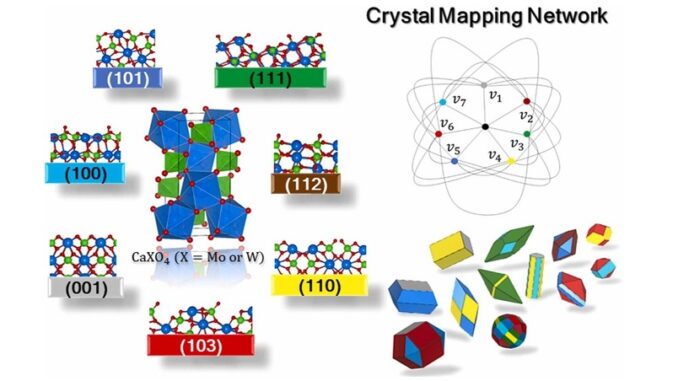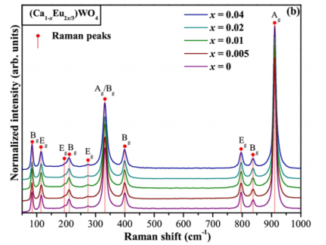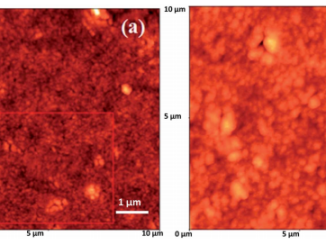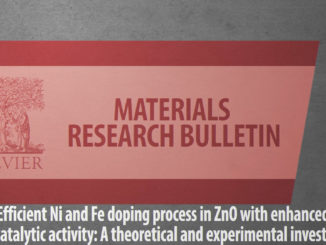
Morphological transformations mapping of CaXO4 (X = Mo or W) and their surface stability
Abstract: The knowledge about the mechanisms of the morphological control of nanoparticles (NPs) is directly correlated with the atomic configurations of their exposed surfaces, which can facilitate materials functionalization according to the surface-dependent properties. In this context, this study focused on modeling via the density functional theory (DFT) the (001), (100), (101), (103), (110), (111), and (112) surfaces of the CaXO4 (X = Mo or W) (scheelite phase) to offer a comprehensive study of their structural and electronic properties. Additionally, a systematic mapping of the NPs morphology was elaborated as a function of the modulation of the surface energies. For the surfaces of both systems, a stability order of (001) > (112) > (111) > (101) > (110) > (103) > (100) was observed. Differences were observed in both systems concerning the outermost polyhedral distortion and their atomic charges. The band alignment analysis revealed the potential use of both materials in photocatalytic environmental remediation. The methodology and results presented herein can be useful for targeting the synthesis and functionalization of CaXO4 and related materials.
Author(s): Laranjeira, J.A.S.; Fabris, G.S.L. ; Albuquerque, A.R.; Ferrer, M.M.; Sambrano, J.R.
Materials Today Communications
Published: December 2022, Volume 33, 104178
DOI: https://doi.org/10.1016/j.mtcomm.2022.104178
CDMF
The CDMF, hosted at the Federal University of São Carlos (UFSCar), is one of the Research, Innovation and Dissemination Centers (RIDC) supported by the São Paulo State Research Support Foundation (Fapesp), and also receives investment from the National Council Scientific and Technological Development (CNPq), from the National Institute of Science and Technology of Materials in Nanotechnology (INCTMN).




